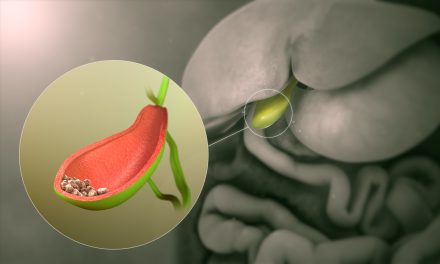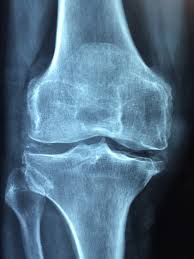By W.J. Hawkes, M.D., Los Angeles, Cal.
In discussing this subject I do not wish to be understood as condemning serum therapy unreservedly. Practically I know too little about it to warrant my taking such a position.
Admit “in principle,” as the rulers of nations say, that the theory of serum therapy is sound, and that it runs parallel with similia similibus cutentur, as it seems to do. I contend, however, that the practice is less safe and no more effective curatively, or as a prophylactic, than our practice of oral therapeutics.
It is less safe because thereby is injected directly into the blood a foreign substance of possible impurity. By this process nature’s protective agencies – the germicidal secretions of the alimentary tract – are evaded. Nature is thus deprived of her only safeguard. The same substances taken by the mouth would be rendered practically harmless. Many examples might be cited of substances which are fatal when introduced directly into the blood, but which are comparatively harmless when swallowed.
Even though vaccines be prepared with the utmost care and cleanliness, there is still a probable element of danger from their administration hypodermically. But their preparation and distribution is a commercial proposition, and hired help of many hands must be employed in the process. The immense quantity manufactured and sold and used, renders it a physical impossibility for a few scientific men to do the work. Individuals who work for wages and who have no conception of, nor interest in the vital necessity of their being minutely careful and scrupulously clean in their work are not to be relied upon. Hence the danger of impurity. Why take the risk when we have means of exhibiting measures at least as effective for good and at the same time absolutely safe?
The absurd claim formerly made that the substances injected as germicides did their work by bodily attacking the disease-producing germs and physically destroying them is now practically abandoned. The ground now taken is that the good work is performed by raising the opsonic index and increasing antibodies in the blood, which attack and destroy the inimical germs. This may be true and a valid claim. But in plain language that is simply saying that they thereby restore the blood and body of the patient to as nearly as possible a normal state of health. Perfect health is the best safeguard against bad germs or disease-causing conditions of whatever character. Any procedure which deranges the normal proportion and relationship of the varied constituents of the blood or other fluids or tissues of the body is inimical to the health of that body. Hence, even if the number of antibodies could be increased above their normal proportion in the blood, the health of the body would be to that degree impaired. We cannot be either above or below normal in any of the constituents of the body and be perfectly healthy.
I contend, therefore, that whatever measures most easily, thoroughly and safely restore the body to perfect health and prevent departure therefrom is the best weapon at the command of the physician against sickness. This being true, I ask is there any better combination known for the accomplishment of this most to be desired end than perfect and comprehensive hygiene and our “science of therapeutics?” Do you know of any such? I surely do not.
The function of medicine is to attack and remove the constitutional inherent defect which in us all impairs our natural powers of resistance against disease producing influences, and the function of hygienic measures is to obviate external exciting causes. These allies are unbeatable.
Vaccines are now being extensively employed in an ever-increasing number of diseases as prophylactic and curative measures, and extravagant claims are being made as to their efficacy in the cure and prevention of disease. Small-pox is the disease having the questionable honor of seniority in this list, and is the one having the greatest number of adherents having implicit faith in its efficacy as a prophylactic against variola. But the only evidence offered in support of this claim is the fact that small-pox has diminished greatly in frequency and severity since vaccination has been in vogue. But to me this evidence is far from conclusive or convincing, because the same evidence can, with as much logic, be urged in support of the claim that vaccination has been the cause of a like reduction in the frequency and severity of intermittent fever, yellow fever, cholera, the plague, etc. For all these diseases have been in the same period even more thoroughly eradicated than has small-pox.
Now I want it to be distinctly understood that I am not questioning or denying the efficacy of vaccination by scarification as a modifier or preventive of small-pox. What I do claim is, that it is a dangerous proceeding, and that we have a method which is as effective, and which is at the same time absolutely safe. I have personally convincing and accumulated evidence of the dire results often following vaccination by scarification, so that I have not for years vaccinated in that way, nor will I ever again do so.
The lamentable fact that responsibility cannot be placed when palpable injury results from vaccination with impure virus prevents publicity and punishment, and more than any other cause prevents exposure and investigation. As it is on no one concerned can responsibility of damage be placed, and the injured one is helpless and those responsible go unpunished. In any other case of malpractice, though having less evil consequences, punishment would follow.
Experiments by homoeopathic professors in Iowa University convinced them the taking variolinum per orem was effective in producing the reaction characteristic of vaccine, and the results sought for by vaccination, and that absolutely without risk. Acting on this conviction they adopted that method of vaccinating school children, giving certificates that such children had been successfully vaccinated. Furthermore, these certificates were judged legal and satisfactory by the court in Iowa City, Council Bluff’s and Chicago.
Probably the disease next most vaccinated against is typhoid fever. This is carried to bush an extent in the army and navy that recruits are court martial ed and punished by imprisonment and otherwise for refusing, when conscientiously opposed to it, to submit to vaccination. From “The Land of the Free and the Home of the Brave” viewpoint, this is a very serious matter. Furthermore, it is dangerous in another way beside the direct danger of the inoculation.
There is probably no other disease the direct cause of which is so easily and unmistakably traced and fixed as typhoid fever, and consequently so easily destroyed or avoided. With uncontaminated food and drink there need be no typhoid fever in any community. Again, hygiene – cleanliness – is the remedy and the only remedy needed as a prophylactic. Hence, the second source of danger is faith in the theory and practice of vaccination as all-sufficient protection against typhoid fever. If the people and health officials of communities are convinced that the only thing needed to guarantee them protection against typhoid fever, the need and importance of hygienic precaution against it will be neglected or lost sight of altogether. We all know how indifferent, through ignorance. Probably, a majority of the dear people are to the ordinary rules of hygiene; and this knowledge tells us that, even when facing an epidemic, how little attention they will give to these rules if they are assured by their medical authorities that they need have no fear if only they are vaccinated.
In the Russo-Japanese war vaccination against contagious diseases was not practiced. Only intelligent, extensive and most thorough hygienic measures were employed. Yet their record of freedom from typhoid fever was the wonder of the world. In the making of this record the authorities were strongly reinforced by the ambition of the soldiers themselves.
The japanese soldier who dies in battle for his country, or who is crippled and discharged because of wounds, is a hero in the eyes of his family and friends. But if he dies or is discharged because of sickness, he is held in contempt, so he uses every intelligent effort to avoid sickness, while he braves death with a fearlessness that is almost fanatical.
They are intimately and thoroughly instructed as to all hygienic means of preventing all causes of disease, and cleanliness in its broadest sense is the keynote. Nor is this confined to themselves and their camp; the surrounding country and villages are thoroughly policed and cleansed. Especial attention is given to sources of water supplies. Boiling the water is attached to all commands.
Their ration of food is simple and not excessive, and consists chiefly of rice, and occasionally a little barley. But little plished by operation. For my part, I cannot for the life of me imagine what the operation was expected to get rid of. No abscess, no pus and no enlarged or infected glands. The operation was on Tuesdays. The serum was injected on the following Thursday, and erysipelas set in on Friday.
I saw him first on Sunday, August 27th, two days later. All information of the case I had previous to this, my first visit, was given me by the friend, physician mentioned, and the wife of the patient.
When erysipelas set in the patient, who is a staunch homoeopath, and knowing a good deal about drugs and medicines, insisted on my being sent for and being given full charge of the case in all matters except what was strictly surgical. This was agreed to by the surgeon and myself. The situation was not at all to my liking, and I had suggested that it would please me if a surgeon of my own school were called. The surgeon was very nice about it, and expressed perfect willingness that this should be done, but surgeon and patient were friends and the surgeon had operated in the family before, so it was agreed that he should continue to dress the wound, while I took charge of the medical and dietetic treatment.
The erysipelas had begun on the shoulder of the affected arm. The absurd method of drawing a scar line to prevent spread of the skin inflammation had been resorted to without apparent effect. The flush extended so that it covered practically the entire surface of the body from the hair line of the scalp to the feet.
I have never in all my experience seen a case act as this one has during the six weeks of my attendance. The patient would apparently respond to the action of each remedy administered, and then, without apparent cause, would relapse and become a little worse than before. The erysipelitic flush would almost disappear and again return, to again disappear and again return. The temperature would rise to 1030, and in twelve hours or less recede to normal, and even to a degree below normal. The pulse was at all time out of proportion to the temperature, running as high as 148. To-day (October 10, 1916) the temperature is normal, while the pulse is 140. Mild delirium set in about two weeks ago. At first the delirium was characterized by the baptisia symptom; his legs were out of place and he was distressed lest they get away from him. Baptisia in twelve hours corrected all that, and at the same time the temperature dropped from 1020 to normal. Later, the character of delirium changed to fear, causing the patient to want to get away; at the same time there was profuse warm sweat over the upper part of body, and the eyes had a frightened look. Belladonna acted as promptly as had Baptisia.
The diet was confined to fruit juices, with a portion of lamb broth with a little well cooked rice in it, according to appearance of tongue and desire of patient. He was very thirsty during the first three weeks, and had all the boiled water he would take.
Retention of urine began about a week ago, with occasional involuntary dribbling. About the same time slight involuntary stools began. The bowels had given but little trouble. It is now necessary to catheterize.
The patient is in a critical condition, and the prognosis is doubtful. Dr. Shepherd saw the case with me about a week ago.
Now I am convinced in my own mind that the vaccine injection was the chief cause of the trouble. Also I am sure that the operation was a mistake. The wound is perfectly healed.
I am glad I have not to bear the responsibility of those injections of (anti-what?) serum on my conscience. I can say the same of a number of other such injections.




